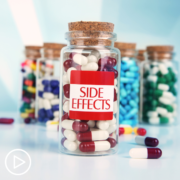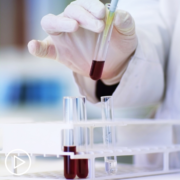How Can Myeloma Treatment Impact Kidney Health?
How Can Myeloma Treatment Impact Kidney Health? from Patient Empowerment Network on Vimeo.
Dr. Joshua Richter discusses the impact of myeloma treatment on the kidneys and provides key advice for optimal kidney health.
Dr. Joshua Richter is director of Multiple Myeloma at the Blavatnik Family – Chelsea Medical Center at Mount Sinai. He also serves as Assistant Professor of Medicine in The Tisch Cancer Institute, Division of Hematology and Medical Oncology. Learn more about Dr. Richter, here.
Related Programs:

|

|

|
Transcript:
Katherine:
Are kidneys impacted by any of the medications that patients take?
Dr. Richter:
So, kidneys are an excruciatingly important part of myeloma, and in my mind, one of the keys to long-term survival and outcome. So, there are three things that I tell all of my patients to help preserve long-term kidney health. Two of them are easy to wrap the head around. One is a little bit harder. Number one, keep yourself well hydrated. The kidneys are like a filter. Think, like, the filter for your car. If you drove 100,000 miles in the desert and didn’t change your oil, there’d be problems. So, especially now that there’s warmer weather, by the time you already feel yourself dehydrated, you’re about 10 to 15 percent low on the total amount of body water you need.
So, especially if you’re going out there doing yard work, playing with the kids or grandkids, make sure you’re drinking plenty of water. Two, avoid NSAIDs. Drugs like Aleve, or naproxen, or Advil, or ibuprofen can be harmful to the kidneys. So again, please discuss with your care team. There may be better alternatives to treat your pain without hurting the kidneys. And the third is when all else possible, avoid intravenous contrasts for CAT scans. Now, the IV contrast you get for MRIs is called gadolinium. It’s not harmful to the kidneys. But the contrast for CAT scans is iodine-based, and although the newer formulations are better, it can still hurt the kidneys.
So, my advice is the following. If you’re in the ER at 2:00 a.m. in the morning and they want to do an urgent CAT scan with IV contrast, let them do it. It’s likely not going to be an issue. If you go to see an orthopedist and they say, “I want to get a better look at that leg that’s bothering you. I’m going to get a CAT scan with IV contrast,” tell them to call me. We’ll find an alternative.






